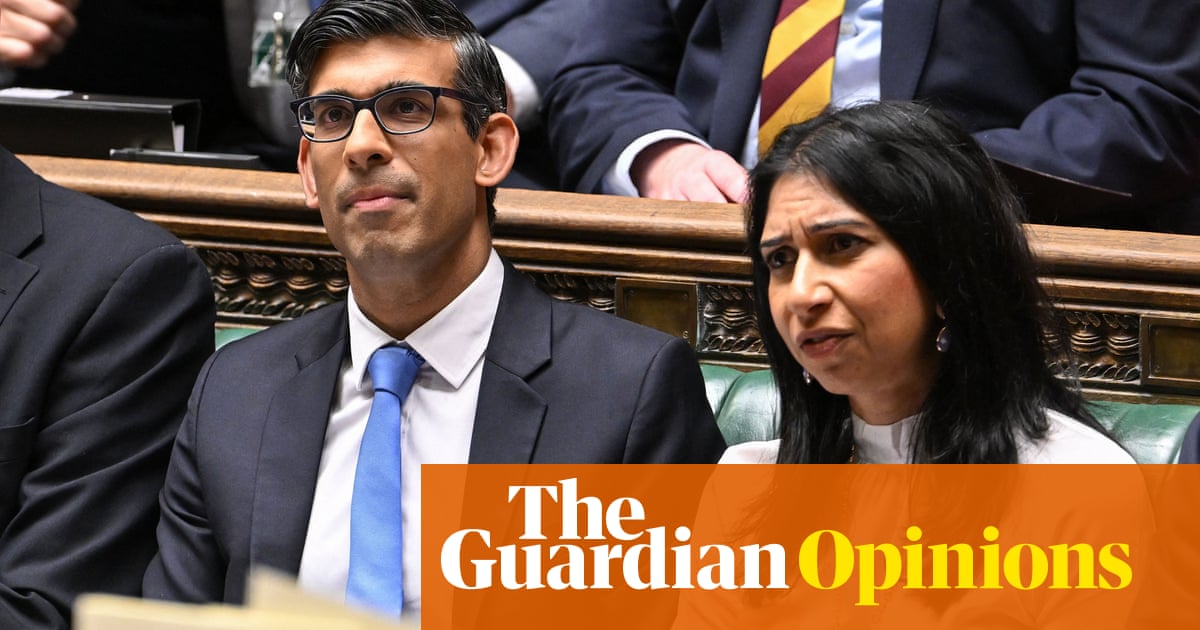
This year, the Conservative party made perhaps one of its greatest political errors in nearly two centuries of existence: getting rid of Boris Johnson. Don’t worry, I’m not suddenly getting nostalgic for his wretched premiership. The man clearly deserves an ignominious place in the history books – from the tens of thousands of avoidable deaths because of his bungled handling of the pandemic to his seemingly pathological addiction to deceit.
The question I’m interested in here is about the Tories’ own interests; indeed, Johnson’s dethroning may well consign the party to the electoral wilderness for a generation or more.
When they made him leader, Tory MPs entered into a pact, not a love affair, with Johnson. They set aside misgivings about his moral character because he served a purpose: he was the only Conservative with a populist appeal to see off Nigel Farage and Jeremy Corbyn, and deliver the Brexit craved by the Tory Spartans. For a while, Johnson’s rupture with the EU was sufficiently hard to satisfy the cravings of his rightwing flank. But for them Brexit was a means, not an end: they sought a bonfire of regulations, rights and taxes. To their growing horror, Johnson was content to invest and to tax.
This sat well with many of the voters who joined the Tory fold in the winter of 2019. After all, rightwing economic libertarians represent a tiny fraction of the British electorate. You could say that Johnson’s great political achievement was to keep the electorally poisonous excesses of Tory economic thinking at bay, allowing him to attract supporters who were socially conservative, but who had developed a profound distaste for austerity.
But soon Conservative MPs and the elderly, shire-dwelling Tory membership tired of their prime minister. Not because of his deceit, but because of his lack of Thatcherite zeal. Anyone who succeeded him would have had to prove their commitment to a hardcore economic agenda.
This meant that as soon as Tory MPs secured Liz Truss – the most committed ideologue in Johnson’s cabinet – a place in the final two for the membership to decide, her triumph was inevitable. The one politician with a realistic prospect of preventing such an outcome was Penny Mordaunt, but her campaign was torpedoed because she was deemed insufficiently committed to demonising trans people. The toxic rightwing obsession with trans people, then, played a role in sealing the Tories’ fate.
The fall of Johnson made the rise of Truss almost unavoidable. And with her came an unapologetic hard-right economic agenda that delighted the grassroots before crashing the markets and causing mortgage payments to spike. This catastrophe repelled many of those who opted for the Tories in 2019 and, combined with the resulting political turmoil, led to a near total collapse for the Conservatives.
Rishi Sunak’s personal ratings remain competitive with those of the Labour leader – although, given Sunak’s invisibility, perhaps that’s because it’s so easy to forget he’s prime minister – and he can claim vindication for predicting the collision between Trussonomics and reality. But his premiership is doing little good for Tory support, which remains somewhere between dire and calamitous. Indeed, would Johnson have embarked on Sunak’s profoundly unpopular relaunch of austerity?
True to his trademark sense of humility, Johnson declared in his resignation speech that “we’re actually only a handful of points behind in the polls”. This wasn’t delusional: the Tories were around seven points behind the opposition when he was turfed out of No 10. That deficit now stretches to more than 20 points. It is true that governments are often unpopular halfway through parliaments and can recoup their support as an election draws close. But there is a difference between a defeat and a rout. The Tories might have gone on to lose a second general election under Johnson, but not so badly as to leave political recovery a distant prospect.
The Tories, frankly, should have held their nerve. Overthrowing a leader naturally triggers political turmoil, which grates on voters. That would have been a price worth paying if there had been a likely successor with popular appeal committed to economic policies that weren’t electoral poison. Instead, the Conservatives had a civil war, and then appointed the most disastrous leader they’ve ever had.
All of this, of course, means the return of Boris Johnson is entirely plausible, especially if the Tories suffer an electoral drubbing in the May 2023 local elections. If that leads Tory MPs to conclude Sunak must be ejected from power, Johnson is the only viable replacement: you simply cannot appoint a third unelected prime minister, so you must return to the leader who delivered your electoral mandate. That’s clearly Johnson’s plan; why else are sources saying he will stand again in Uxbridge?
But he should not be so sure he will prove to be the Tory saviour this time. It is likely that voters will have simply made up their minds. It will be easy to tie Johnson to this crime scene, because – driven by petty revenge against Sunak, who he sees as a backstabber – he clearly aided Truss’s ascent to power.
Fatalism now grips Tory MPs, which is why so many are deserting politics, perhaps hoping their destiny will be lucrative City jobs, rather than the televised humiliation of being trounced at the next election. What is done is done, and the absence of a time machine leaves the Tories with no good options. A tragedy for Britain’s so-called “natural party of government” – less so for the rest of us.
Owen Jones is a Guardian columnist












